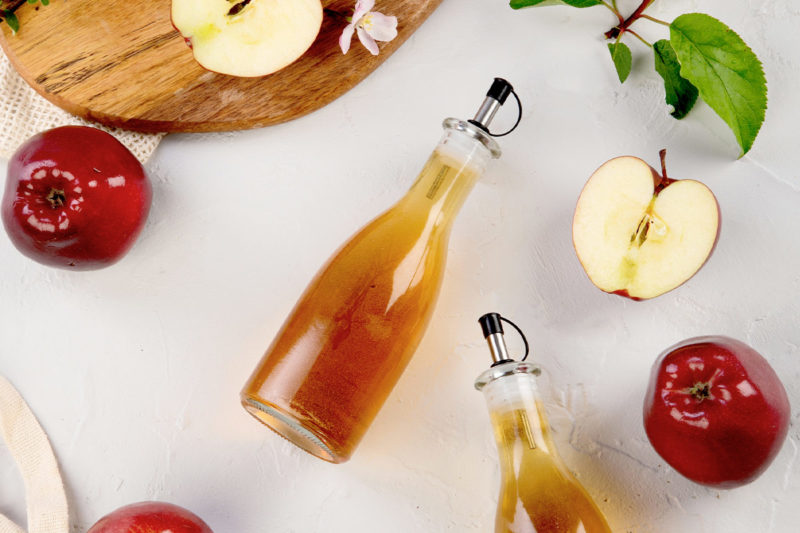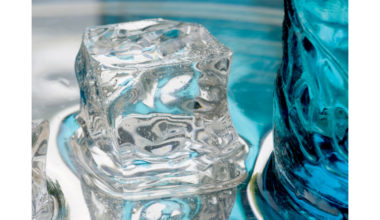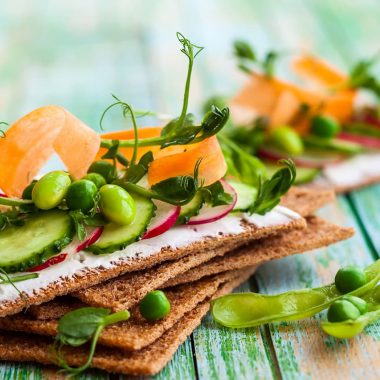Do you have erratic and high blood sugar levels or diabetes? Could cider vinegar be your ally? Indeed, cider vinegar and glycaemic index may be a winning combination for some.
Grandmothers’ remedies have long boasted about the benefits of cider vinegar and even a 2005 study by the University of Lund in Sweden, confirmed its benefits when it came to diabetes and blood sugar. Even though this was an experiment on the general topic of vinegar (study “by E. Ostman, Y. Granfeldt and I. Björck, Vinegar supplementation decreases glucose levels, has a positive impact on insulin and increases satiation when added to a bread-based meal in healthy subjects”). Another additional benefit is its sense of fullness! To investigate this, the researchers administered three different doses of vinegar, mixed with a portion of white bread (18, 23, or 28 ml), and then measured the effects on blood sugar, insulin, and satiation. The results? A significant association was observed after 30 minutes according to a blood test regarding the first two criteria and in an reported manner regarding fullness. And the higher the dose of vinegar consumed, the more significant the results were and sufficient to confirm the hypothesis of the Swedish study.
What is cider vinegar?
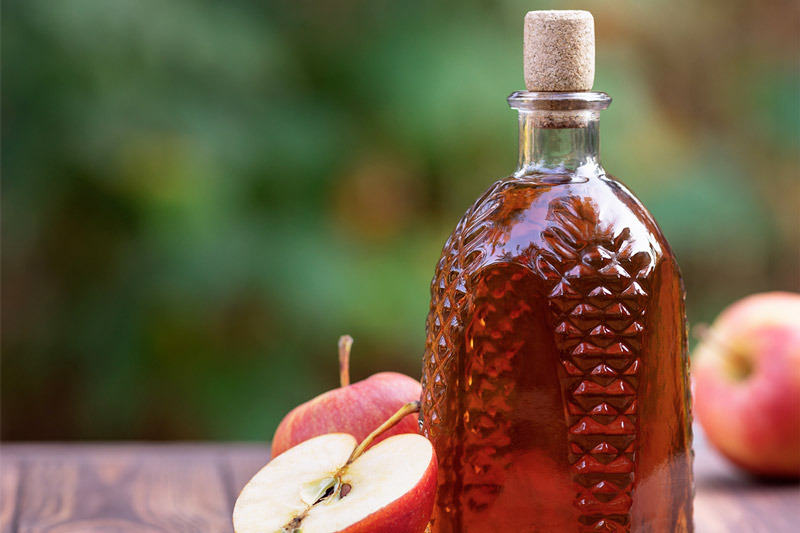
Vinegar is derived from apples. Originally, apple juice was fermented into cider, with the yeast turning the sugar into alcohol. A second process of fermentation transforms the alcohol into acetic acid and thus the cider into vinegar with a soft and sweet taste. And if it’s a bit cloudy, it’s because it contains a ” mother of vinegar ” (incidentally it says so on the bottle), and all the better as it’s full of nutrients and minerals. A vinegar mother is a film that forms when the surface of a wine is in contact with air and oxygen for a long time. With oxygen, the bacteria transform the alcohol into acid and create a gelatinous film (as if woven by the bacteria) the same colour as the wine (red with red wine, cream with white wine).
How to ingest cider vinegar?
For Laure Carpentier, a naturopathic doctor, and therapist specialising in food rebalancing and the creator of Studio 118 in Paris (@laure_carpentier), cider vinegar is truly a healthy ally that is easy to integrate into one’s eating routine. “A tablespoon of cider vinegar (pure or mixed with a little water at room temperature, preferably through a straw to avoid contact with the teeth) lowers the blood sugar index and helps the pancreas not secrete too much insulin”. It is therefore an excellent natural alternative to certain treatments designed to lower the GI, to be discussed with your doctor or healthcare professional. As far as weight is concerned, it has a recognised effect, “in fact, this daily tablespoon over the course of a treatment, with the aim of losing weight, can enable you to lose two kilos!” explains Laure Carpentier. And make no mistake, cider vinegar is alkalising, not acidic. Unlike lemon, which can be acidic depending on the individual’s particular condition and naturopathic temperament. Cider vinegar, due to its alkalising nature, contributes to homoeostasis (the return to metabolic balance), so the good news is that it can be used in all recipes! Naturally, we understand the usefulness of pickled raw vegetables and salad at the end of the meal to boost digestion. In her food rebalancing workshops, Laure and her acolyte Stéphanie Guillemette, a vegetarian chef, organise “drainage & cooking” workshops during which they share, among other tips, the use of cider vinegar. For example, a dash can be added to salad dressings, of course, but also to pan-fried vegetables, rice, and legumes, and at the end of cooking a broth to take advantage of the collagen in the bone that is simmering with the vegetables. “Easy to combine with all kinds of oils, it enhances the flavour without acidifying it: camelina, walnut, and hazelnut oil. A little tip: remember to keep these oils in a cool place or at least in a dark glass bottle to protect them from free radicals, which degrade them very quickly,” adds Laure.
An ideal vinegar for controlling blood sugar?
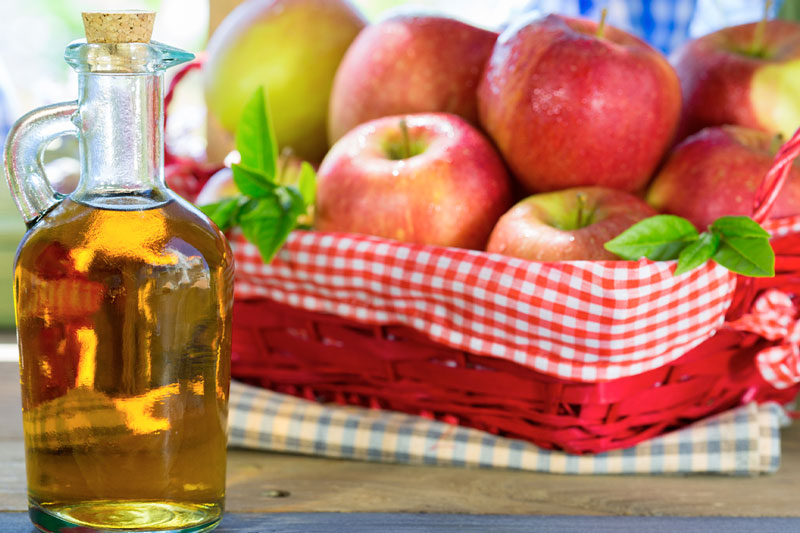
But first, why seek to control your blood sugar at all? Because glucose spikes have harmful effects on our health. Balanced blood sugar levels are around 30mg/dl, but when it rises, it leads to inflammation and increased cravings which can affect weight. Hence, the interest in cider vinegar slowing down digestion and the conversion of starchy foods (especially pasta) into glucose. More precisely, it is the acetic acid contained in vinegar that regulates the blood sugar level and helps prevent sudden changes in blood sugar levels. But, beware, although this natural solution helps regulate blood sugar levels, it is not a diabetes treatment. Just as a weight gain boost does not constitute a diet on its own… However, the pectin contained in cider vinegar does have this satiating effect due to its fibrous nature. Be careful, if you suffer from ulcers or kidney problems, we advise against daily consumption of cider vinegar, even if it is alkalinising. And to protect the enamel of the teeth, it is advised not to overuse it (even in treatment while losing a few kilos). Beyond its effects on blood sugar, cider vinegar is interesting for its levels of polyphenols, potassium, and vitamins.
In conclusion, cider vinegar does not cure diabetes, but it can lower blood sugar levels. It does not replace a treatment but complements it advantageously. As a bonus, it could have effects on blood lipids, but while this has been observed in animals, studies are still underway in humans. One last tip: if you have a sore throat, pour 2 tablespoons of cider vinegar and a teaspoon of honey into a glass of warm water and gargle. You will have a crystal clear voice to sing the virtues of cider vinegar on blood sugar!


